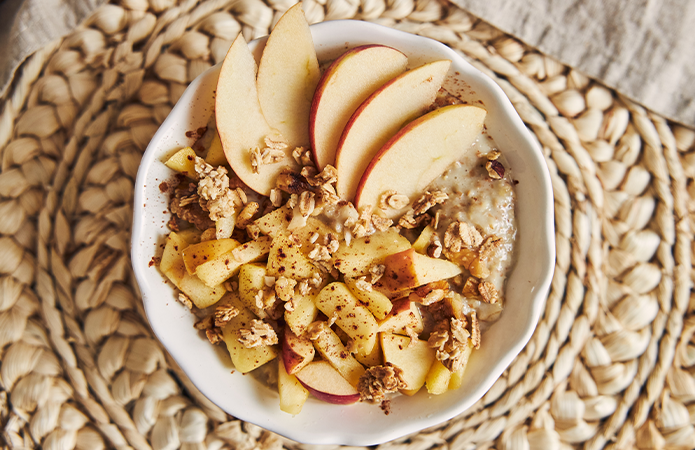If you're interested in a healthy lifestyle or occasionally find yourself in that part of the internet where you can find diet advice even with your eyes closed, you've probably read a lot about the importance of daily fiber intake. Nutrition experts recommend consuming around 30 grams of dietary fiber per day for an average adult, but unfortunately, in our country, only half to one-third of this amount characterizes our traditional diet.
I'm glad if I reach a cup of coffee!
In the rush of weekdays, healthy eating, especially a nutritious breakfast, often takes a back seat due to lack of time. As in many other aspects of life, in terms of eating, it can be said that with advance planning, menu planning, or choosing a high-quality, fiber- and protein-rich compact meal, you can not only save time but easily save the day.
With a fiber-rich breakfast, you can stay satisfied for a long time because the bulk materials can help maintain a steady blood sugar level by physically delaying the absorption of nutrients, distributing them more balanced. Thus, in addition to delaying the reappearance of hunger, they can have a positive effect on your physical and mental performance, eliminating the harmful side effects of sudden nutrient absorption (sudden fatigue, drop in blood pressure, rapid increase in blood sugar, etc.).
Where do fibers come from?
We already know that a day can start better with a fiber-rich breakfast, but it may not be entirely clear what falls into the category of dietary fibers. According to MDOSZ, indigestible carbohydrates found in vegetables, fruits, grains, legumes, seeds, and non-carbohydrate-based substances associated with them can be included in this group. Examples include, among many others, inulin, pectin, and methyl cellulose.
When applied to your diet, you can achieve the proper fiber intake by consuming whole grains, fruits and vegetables, legumes, nuts, and seeds.
The underrated ingredient
If the above reasons haven't convinced you of the importance of adequate fiber intake, allow us to elaborate on why these bulk materials are essential for a balanced diet.
As you've read, fibers can contribute to achieving a feeling of fullness, thus providing significant help in maintaining optimal body weight in the long run. Additionally, they can play a significant role in maintaining cholesterol levels and act as guardians of digestive system health.
Morning, noon, evening
But when should you consume fibers? The answer is not so complex: preferably at every meal, but never too much. Fibers, like most nutrients, can be overdosed, causing unpleasant symptoms. Consuming 30 grams per day, along with an adequate amount of fluids, is more than enough to enjoy the above beneficial effects without worrying about side effects.



